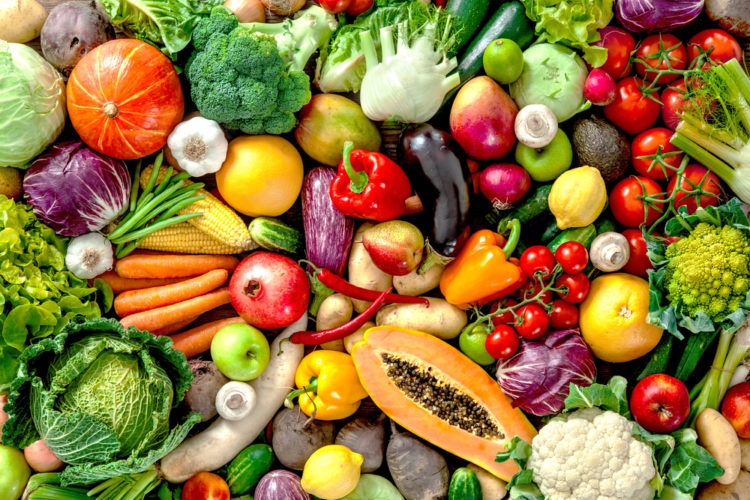Much to my chagrin, fad diets continue to pop up. While I am tempted to roll my eyes each and every time I am asked a question about these trends, it is my job to be educated on these things so I can best help my clients (and my friends/family) make the choices that are right for them.
Although it may seem like the ketogenic diet is this revelation recently discovered and made popular, the truth is it is actually not a new diet at all. The diet can be cited back to 500 BC when the ancient Greeks were using it for “convulsions.”
Fast forward to the 1900s and it started regaining popularity in the medical world for treatment of epilepsy. Most recently, it has started to shove other low carb diets like South Beach, Dukan or Atkins to the side for its weight loss claims. Now, I can’t walk down the street without being inundated by “keto friendly products” or walk into a dressing room without hearing, “It’s because I’m keto!” as a shopper models her new, slimmer physique. So, now my friends, we talk about it.
Editor’s note: The content on BarBend is meant to be informative in nature, but it shouldn’t take the place of advice and/or supervision from a medical professional. The opinions and articles on this site are not intended for use as diagnosis, prevention, and/or treatment of health problems. Speak with your physician if you have any concerns.

What Is the Ketogenic Diet?
The ketogenic diet is a high fat diet with one specific goal: to shift your body into ketosis. Under normal circumstances, carbohydrates are our bodies (and specifically our brains) energy source of choice. In the absence (or severe reduction) of carbohydrates, our bodies shift to using ketones for energy. Ketones are made from fat cells, which is why low carb diets have been touted for weight loss.
[Related: The Fascinating History of the Keto Diet]
Why a Low Carb Diet Helps You Lose Weight Fast
First of all, we need to step back and understand some physiology. Our bodies store carbs in the form of glycogen. To make glycogen, we link carbs to water. When you stop eating carbs, you deplete your glycogen stores. When your glycogen stores get depleted, you lose the water that was once with the carb, which creates an instant drop on the scale.
Although it might be exciting to see a dip in that number, I promise you that the dip is just water weight from the lost glycogen. That is why people lose a good amount of weight quickly on most low carb diets. Sadly, when you go back to eating real food (which you should), that fake weight loss will disappear just as quickly as that plate of donuts that tempted you out of ketosis in the first place.
It is important to note that when used therapeutically (as a medical treatment), the diet is typically 80-90% fat, meaning it is low in carbohydrates and protein. The diet made popular for weight loss does not emphasize as strict of a restriction on protein. The issue? Protein is glucogenic – meaning your body can take protein and produce glucose instead of ketones, shifting you out of ketosis if you overdo it on the protein.

The Pros of a Keto Diet
Any diet that gets you to avoid white, refined, ultra-processed carbohydrates is something I can get behind. It’s no secret that these foods aren’t good for our health or our waistlines. The ketogenic diet can also include lots of healthy fats — avocado, nuts, seeds, olive oil, etc. Fat is so important for satiety, so from a weight loss standpoint, including these fats in your diet is likely going to help you eat less without feeling deprived.
It is also important to acknowledge that the keto diet may have benefits beyond nutrition. There are studies that suggests ketosis can lead to improved mood, memory and cognition.(1)(2)(3)
[Related: Can Keto Be Useful for Athletes?]

The Cons of a Keto Diet
My issue with the way the ketogenic diet is being used today is that people are choosing more processed foods and avoiding natural carbohydrates, like a sweet potato. I just said that the diet can include really healthy fats. The issue is it also can include really unhealthy, ultra-processed fats (looking at you, canola oil or conventional butter).
Additionally, this diet contributes to the dialogue that “carbs are bad”. May I remind you, plants are carbs. A cucumber? Technically a carb. Recently, one of my guy friends was “keto”. When I probed him a bit about his diet, he began listing things like jerky as one of his main energy sources, and then in the same breath told me he can’t have kale “because it has too many carbs”. Insert major eye roll.
One of the biggest challenges with the keto diet comes from this carb avoidance leading to a fiber deficit. Fiber is arguably the most important part of the carbs that we consume. As fiber moves through our guts, we turn those fibers into short chain fatty acids, which are very important for absorption of certain minerals, appetite regulation and gut microbiota balance (aka the bacteria in our guts). A diet high in fiber is protective against heart disease, diabetes, obesity and even gastrointestinal disorders.(4)(5) When we avoid plant-based foods, we ultimately end up avoiding the very good for us, fibrous foods as well (think beans, legumes, berries, oats, etc.).
[Read more from the author: Why This Dietitian Skips Artificial Sweeteners]

When Does the Ketogenic Diet Make Sense?
As I mentioned, the ketogenic diet is traditionally used as medical nutrition therapy to treat epilepsy that has not been responsive to drugs. Additionally, it has been used to treat certain brain cancers.(6) New research is now emerging showing how the ketogenic diet can be used in other health conditions such as diabetes, cardiovascular disease and polycystic ovarian syndrome, to name a few.(7) To quote Hippocrates, food is medicine, and using the ketogenic diet has been proven as a medical therapy in some conditions.
My Takeaway
While the world of diet and nutrition is not always cut and dry, one thing that is true is the more plants we eat, the healthier we are (this point has been supported by research time and time again).(8)(9)
“But Marissa, I want to lose weight quickly and keto seems easy.”
Sure, there is some promising research on the ketogenic diet and its role in weight loss. But the truth is, there is no evidence to suggest it is a sustainable form of weight management.(10) It might help you lose some weight initially (as most diets do), but if you gain the weight back when you realize that olive oil is not a tasty lunch, did it really work at all?
My thoughts? Use some aspects of keto by adding in healthy fats and avoiding those processed carbs. But please, do not replace them with processed meats. Remember, if you adapt a new diet that doesn’t fit in your long-term lifestyle, the results are likely to be as fleeting.
Editor’s note: This article is an op-ed. The views expressed herein and in the video are the author’s and don’t necessarily reflect the views of BarBend. Claims, assertions, opinions, and quotes have been sourced exclusively by the author.
References
1. El-Mallakh RS, et al. The ketogenic diet may have mood-stabilizing properties. Med Hypotheses. 2001 Dec;57(6):724-6.
2. Hallböök T, et al. The effects of the ketogenic diet on behavior and cognition. Epilepsy Res. 2012 Jul;100(3):304-9.
3. Krikorian R, et al. Dietary ketosis enhances memory in mild cognitive impairment. Neurobiol Aging. 2012 Feb;33(2):425.e19-27.
4. Khan K, et al. The effect of viscous soluble fiber on blood pressure: A systematic review and meta-analysis of randomized controlled trials. Nutr Metab Cardiovasc Dis. 2018 Jan;28(1):3-13.
5. Anderson JW, et al. Health benefits of dietary fiber. Nutr Rev. 2009 Apr;67(4):188-205.
6. Schwartz KA, et al. Investigating the Ketogenic Diet As Treatment for Primary Aggressive Brain Cancer: Challenges and Lessons Learned. Send to Front Nutr. 2018 Feb 23;5:11.
7. Paoli A, et al. Beyond weight loss: a review of the therapeutic uses of very-low-carbohydrate (ketogenic) diets. Eur J Clin Nutr. 2013 Aug;67(8):789-96.
8. Dinu M, et al. Vegetarian, vegan diets and multiple health outcomes: A systematic review with meta-analysis of observational studies. Crit Rev Food Sci Nutr. 2017 Nov 22;57(17):3640-3649.
9. Pettersen BJ, et al. Vegetarian diets and blood pressure among white subjects: results from the Adventist Health Study-2 (AHS-2). Public Health Nutr. 2012 Oct;15(10):1909-16.
10. Murphy EA, et al. A ketogenic diet for reducing obesity and maintaining capacity for physical activity: hype or hope? Curr Opin Clin Nutr Metab Care. 2019 Jul;22(4):314-319.